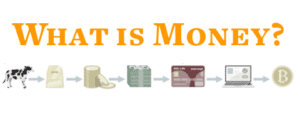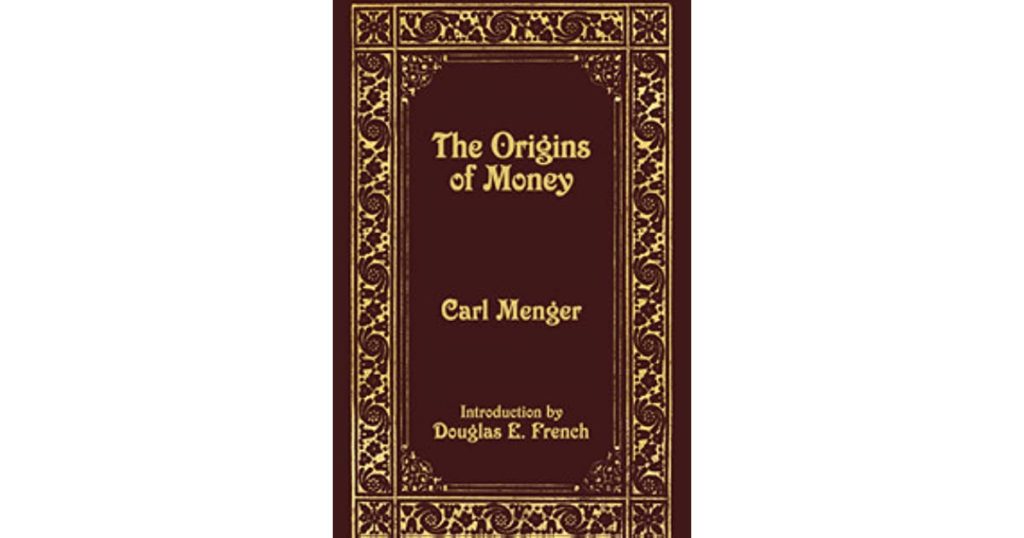Money is often ill-understood, yet critical to the functioning of civilization throughout time. The invention of money has increased prosperity and brought peace across the globe many times over, and its destruction has brought hell to Earth many times as well.
The following are my recommendations on the best resources for understanding money and its role in the world.
I made a short, numbered list because your time is valuable, and I want to give you a clear prioritized list of what to read. I may add a laundry list at the bottom of the post at a later date. Please comment with any reads on money that you’ve found particularly helpful.
1. Carl Menger on the Origins of Money
This read covers a key theory of the evolution of money over time. Menger rejects the all-too-common view that money is a product of governments, who look after everyone by controlling its supply, and instead looks to history to tell us the real truth about money.
His remarkably simple conclusion is that money is not so different from anything else we buy or sell. Money is simply a highly ‘salable’ or ‘marketable’ good that everyone wants and is easy to transact with and store over time. That simple definition applies at all times, and helps us see how governments and banks controlling money is actually a strange, unnecessary, and dangerous idea.
2. The Ethics of Money Production
A long but worthwhile read, this detailed history and theory of money focuses on one key idea we rarely consider today: how money is produced. Investigating this question highlights the ways monetary systems can be weaponized by those in power to serve their own ends – whether that is making the rich even richer, executing cultural ‘reform’, cementing power, or all of the above.
This piece dives in to the relationship between money and government, and explains how we got to today – a world where money is synonymous with governments, laws, and debt.
If you want a shorter read, check out this article of quotes from The Ethics of Money Production.
3. Summary of Debt: The First 5000 Years
This is a summary of a book by David Graeber which takes a different view on money from the other resources I often share. Graeber’s view is that when money is a unit of a scarce commodity that many people collectively desire – a sound money – it leads to violent enforcement and systemic enslavement.
Graeber instead believes money works most effectively as a system of IOUs and debts. While I disagree with the way Graeber polarizes these two systems, he does do a good job laying out how they both work. However, a sound money system makes sense at a large scale – when you can’t trust the person you’re transacting with – while IOU money makes sense at a smaller scale, within a community you trust. Both can coexist beside one another, and should.
After all, we have an IOU money system today (all money is based on debt) which has consistently forced wage earners into dire situations while enriching lenders and the wealthy. Which sounds a lot like Graeber’s depiction of societies under metal coinage!
4. Summary of Rich Dad Poor Dad by Robert Kiyosaki
While many people love to hate this flamboyant author, the points of his book are clear and ring true, even if they are a bit hard to swallow. This book is not about money as a social system as much as it is about your individual relationship with money.
Many still believe that working hard for a salary or wage and saving money in a mutual fund is the path to wealth. Instead, Robert advocates for a shift in how you think about money in order to become wealthy. His statement that “savers are losers” – which he made over 20 years ago – is increasingly true year after year as interest rates plummet and debt becomes nearly free to take on.
That’s it! My recommendations for great reads to better understand money. I hope they’re useful to you, and please comment with any important reads you think I missed.
If you like my work, please share it with your friends and family. My goal is to provide everyone a window into economics and how it affects their lives.
Subscribe to email updates when new posts are published.
All content on WhatIsMoney.info is published in accordance with our Editorial Policy.





